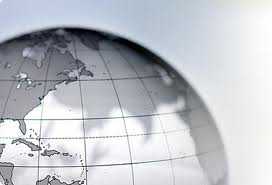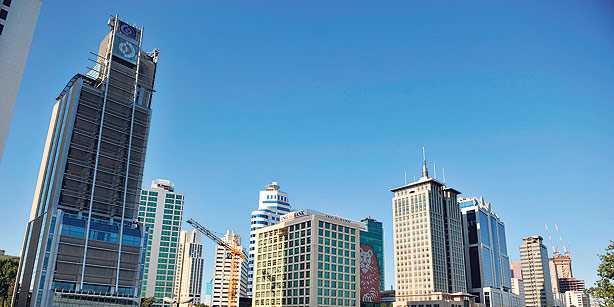By Laurence Knight Business reporter, BBC News

With the sun shining on its economy, many may ask whether Turkey can get along just fine outside Europe
Turkey can rightly feel chuffed at its quick bounce-back.
Having suffered in the global financial crisis like everyone else – output briefly shrank a painful 15% in early 2009 – the country’s economy is now comfortably outstripping its pre-recession highs.
It is a familiar story across the developing world: China, Brazil and others have returned their zippy trajectory, while the US and Europe remain stuck in first gear.
But look a little closer, and you will find that Turkey’s recession woes have merely given way to a new set of boom-time anxieties.
Indeed, the recovery poses tricky conundrums for both economists and diplomats.
A good crisis
“Turkey was fortunate to have their crisis some years early,” says economist Martin Blum at Austrian investors Ithuba Capital.
Continue reading the main story
“Start Quote
The problem is that there are so many moving parts”
End Quote Tevfik Aksoy Turkey chief economist, Morgan Stanley
Turkey’s currency was trashed by markets in 2001, exposing serious weaknesses in its banks, many of which folded.
By the time the global financial crisis came around in 2008, Turkey had already finished the diet of belt-tightening and bad debt workouts that the West has only just embarked on.
As a result, Mr Blum says the country’s slimmed-down banks came through the Lehman Brothers debacle remarkably well.
What is more, years of austerity had also left the entire country with much more manageable finances.
“Debt levels in Turkey are very low,” says Dr Murat Ulgen, economist at HSBC in Istanbul. “Household debt is low, corporate debt is low, public debt is low.”
| TURKEY’S ECONOMY |
2009 (estimate) |
2010 (forecast) |
| *percentage of GDP
Source: EBRD Transition Report 2010 |
| Growth |
-4.7% |
8.0% |
| Inflation |
6.5% |
8.2% |
| Government deficit* |
5.5% |
4.1% |
| Current account deficit* |
2.2% |
6.0% |
| Private sector debt* |
40.8% |
NA |
During the crisis, that meant Turks were not too bothered when the global supply of cheap money suddenly dried up.
And with the credit spigot turned back on to full-flow, the result has been a rocketing growth rate.
Thanks but no thanks
So what’s the problem?
Put simply, where the money is coming from, and going to.
Cheap money is pouring into Turkey from abroad. Ultra-low interest rates in the West make it an easy place to borrow, but an unattractive place to invest.
So, like other emerging markets, Turkey is seeing more and more foreign investors piling into their country.

Cheap money has fed mortgage debts and a construction boom
And that inflow of money is pushing up the value of the Turkish lira, making its exporters less competitive, and foreign imports cheaper for Turkish consumers.
Sensibly invested, this foreign capital could help Turkey’s economy become more productive. Indeed, the government has restarted its privatisation programme for just this reason.
But a lot of the money is flowing into cheap loans. And debt levels, although low, have started rising again.
“Commercial and mortgage debt are growing,” says Dr Ulgen. “The very low real interest rates are fuelling both the supply of and the demand for credit.”
The construction sector has surged ahead, thanks to the easy borrowing conditions.
And Turkish households have also started to take on more debt, save less and spend a lot more, helping to push the country back into a big trade deficit.
Juggling act
It seems an unsettlingly familiar story – the beginnings of the kind of credit bubble that only recently ended in tears in the West.
But here’s the nasty dilemma: what should the Turkish central bank do about it?

Turkey’s central bank finds itself caught on the horns of a nasty monetary dilemma
If it cuts interest rates, it will be even cheaper for Turks to borrow and spend at a time when household spending is already pushing inflation up towards double-digits.
But if it raises interest rates, it makes the Turkish lira an even more attractive investment for foreigners, pushing up its value to even less competitive levels, whilst also feeding the credit bubble.
The central bank’s solution is what Tevfik Aksoy, Turkey chief economist at Morgan Stanley, calls “creative monetary policy”.
It has cut rates to ward off foreign investors, but at the same time it has imposed much tighter limits on banks’ lending.
Mr Aksoy says the jury is still out on whether this unconventional solution will work.
“The problem is that there are so many moving parts on the external front,” he says, mentioning in particular the currency wars – competitive devaluations by the world’s big trading blocs.
“The Turkish central bank is trying to curb currency appreciation, limit deterioration in the current account, limit credit expansion and also achieving the inflation target. It will be difficult to achieve all these at the same time.”
Groucho Marxism
Meanwhile, the boom is also laying bare a much longer-running diplomatic balancing act.
Turkey is officially a candidate to join the European Union (EU), although negotiations have been stymied by its unresolved dispute with EU-member Cyprus.
Yet – as has recently been made painfully transparent by Wikileaks – France and Austria do not ever intend to let Ankara join the EU as a full member.

Wikileaks let slip the French President’s private thoughts on Turkey
The country already enjoys a free trade agreement with Europe.
With their economy roaring ahead – while Europe remains mired in a morass of debt – one may well ask why bother trying to join the EU at all?
Certainly it is a question many Turks are asking, according to one European diplomat posted in Ankara until recently
“If you ask what the majority of the Turkish population thinks, they have greater confidence in Turkey, and the EU is less appealing,” he says.
But the country’s Prime Minister Recep Tayyip Erdogan seems to think it is worth the effort, and insists that all is still on course.
His initial reaction to the US diplomatic leaks was the rather extreme one of joining Iran’s leader in questioning their authenticity.
In a rejoinder to Groucho Marx, it seems Turkey is determined to join a club that will not have it as a member.
So why the obstinacy?
Stamp of approval
“The EU is a matter of democracy, improving institutions and social development,” says Dr Ulgen.
Although he thinks membership would also be good for the economy, its most important role is as an anchor for Turkey’s politics.
Opposition parties and the army are highly suspicious of the ruling AKP party, saying they harbour a secret Islamist agenda.
The diplomat says the next flashpoint is a lifting of a ban on women wearing the headscarf in public sector places ahead of general elections in June that the AKP is expected to win.
He says it is a symbolic move that the government hopes will resonate with its core Muslim voters, while dividing the opposition.

If Turkey’s EU bid fails, Mr Erdogan may need to watch his back
But the big battle is over the consitutional reforms that Mr Erdogan has been pushing through, strengthening the government at the expense of the army, courts and parliament.
“They use the EU’s demands for [these] political reforms to keep the army and more secular judiciary under control,” says the diplomat.
And with the European Commission’s stamp of approval proving crucial, Ankara is keen to maintain the perception that the country’s EU application is still well on track.
Hence, when Wikileaks revealed French President Nicolas Sarkozy’s professed wish that Turkey would eventually give up hope of ever joining the European club, it put Mr Erdogan in a tight spot.
Business interests
So is the EU application merely a ploy to help the government outplay its political opponents? Perhaps not.
“A problem for Turkey is economic reforms,” explains the diplomat.
Turkey will need to implement European standards for public procurement and the environment. It will also have to break up monopolies and cartels.
With much of Turkish industry controlled by a clutch of family-run business empires, he thinks the Turkish government may face strong opposition to any moves to strengthen business regulation and improve competition.
So the government may still need to play its European trump card to get its way.
However, Mr Aksoy disagrees: “I don’t think that any specific sectors or businesses see the EU as a threat.
“Turkey and the EU have had a customs union agreement in place since 1996, and for the past 14 years Turkish corporates learned to trade and deal with the EU counterparts.”
Taking off
All the same, many in Turkey are now looking not to Europe, but to the country’s Muslim neighbours for the biggest opportunities – countries that a hundred years ago were ruled from Istanbul under the Ottoman Empire.

Like TAV, the economy is taking off, although it may be headed east rather than west
Another revelation from Wikileaks was a US diplomat’s unease at the “neo-Ottoman” world view of Turkey’s foreign minister, Ahmet Davutoglu, calling him an “exceptionally dangerous” Islamist.
Yet it is a view that may be founded as much on realism about Turkey’s business and political interests as on ideology.
“There is significant export potential to the Middle East,” says Mr Aksoy of Morgan Stanley.
“Turkey remains a key gate to the West, and one of the main suppliers of processed and unprocessed food, construction services and automotive for the region.”
A good example is TAV – a Turkish airport construction and operating company, originally founded in 1997 to build and run the new terminal building at Istanbul airport.
Since then, the company has grown to take on most of Turkey’s other major airports. But for future expansion, TAV looks to Turkey’s near abroad.
The company has subsidiaries across the region, from Tunisia to Oman. It has built airports in Egypt, Macedonia and Georgia among others.
Whereas the European market has been closed to a seemingly obscure outsider, in Turkey’s old stamping ground the company has come to the fore.




 With the sun shining on its economy, many may ask whether Turkey can get along just fine outside Europe
With the sun shining on its economy, many may ask whether Turkey can get along just fine outside Europe Cheap money has fed mortgage debts and a construction boom
Cheap money has fed mortgage debts and a construction boom Turkey’s central bank finds itself caught on the horns of a nasty monetary dilemma
Turkey’s central bank finds itself caught on the horns of a nasty monetary dilemma Wikileaks let slip the French President’s private thoughts on Turkey
Wikileaks let slip the French President’s private thoughts on Turkey If Turkey’s EU bid fails, Mr Erdogan may need to watch his back
If Turkey’s EU bid fails, Mr Erdogan may need to watch his back Like TAV, the economy is taking off, although it may be headed east rather than west
Like TAV, the economy is taking off, although it may be headed east rather than west

